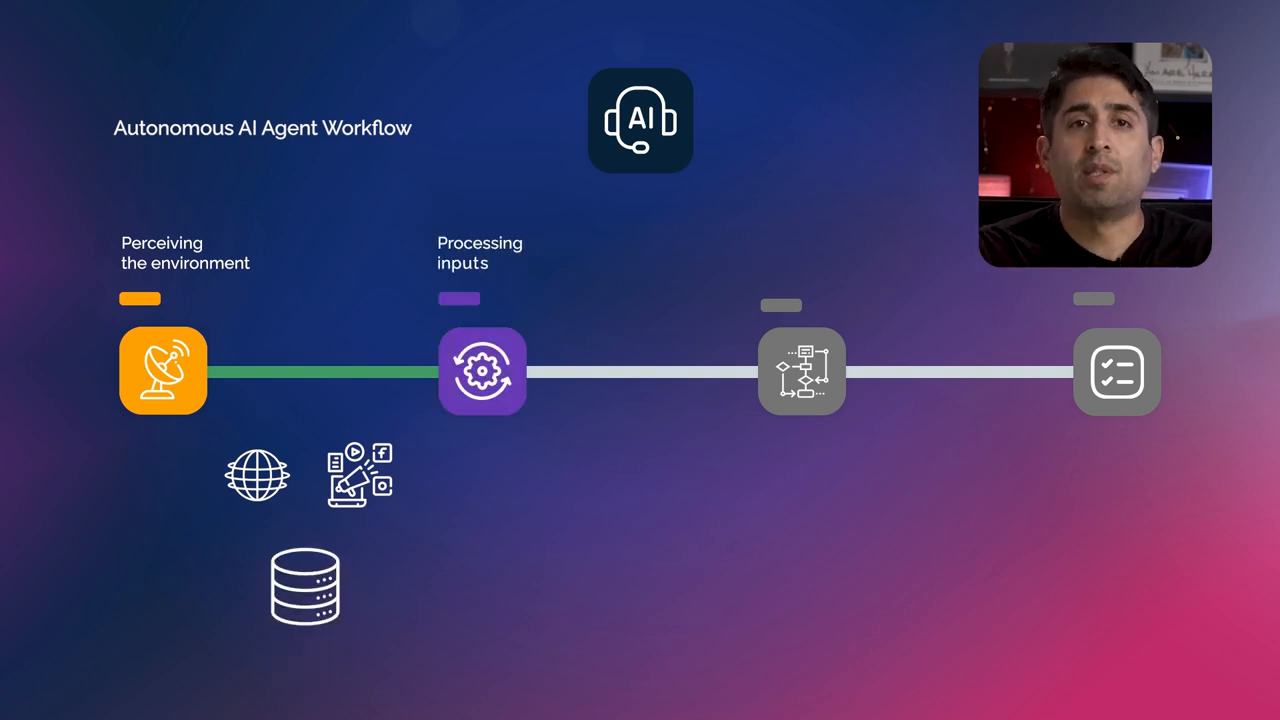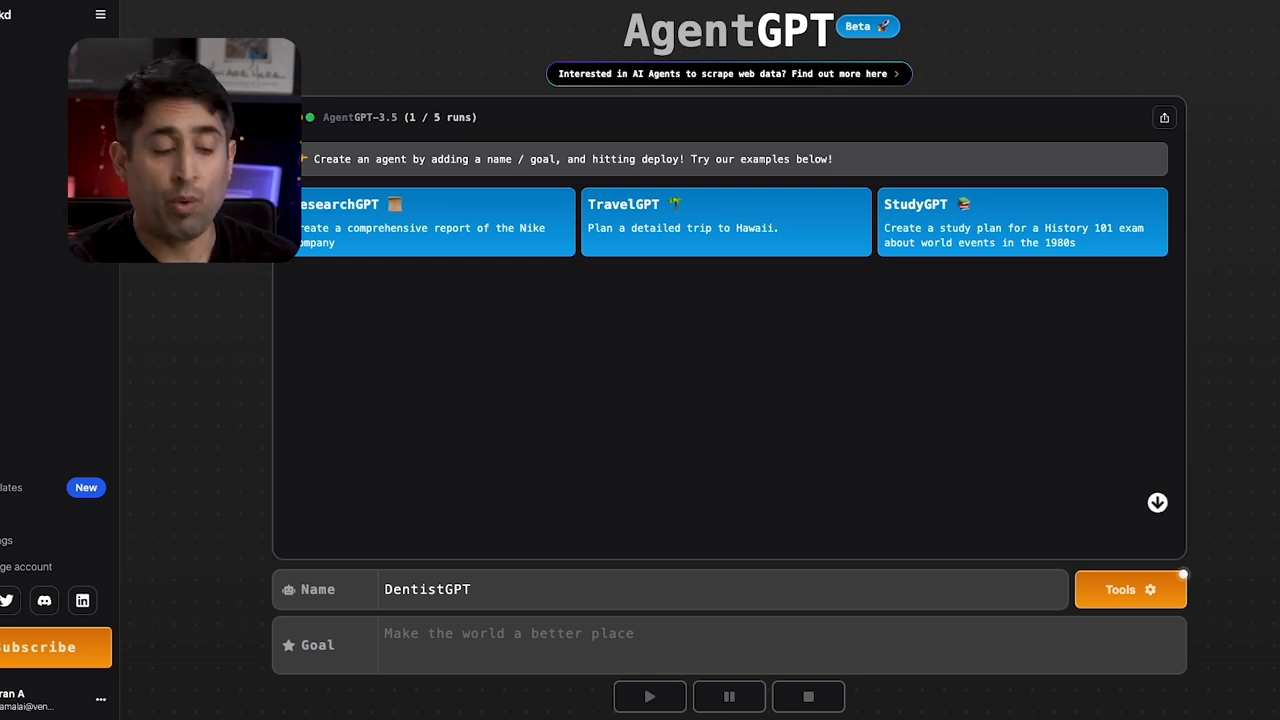How AI employees are revolutionizing businesses
Imagine having a team of AI-powered experts working for your business or agency 24/7, performing complex tasks with remarkable speed, accuracy, and efficiency—but at a fraction of the cost of their human counterparts. This evolving landscape of AI employees is not just a far-off dream anymore; it's happening now. These digital agents are not limited to the traditional generative AI tools like ChatGPT that we use daily for content creation or ideation. AI employees go further—they are capable of handling decision-making processes, adapting to dynamic environments, and executing high-value tasks autonomously.
Mark Zuckerberg, CEO of Meta, points out that in the future, every business will have AI agents to handle customer support, sales, and general operations—similar to how businesses run their websites or manage email today. This article dives into what AI agents are, their potential applications, and how they can transform industries. We’ll also highlight some real-world examples and demo specific tools that businesses and agencies can implement starting today.
What are AI agents?

Introducing AI agents and their potential to revolutionize businesses
An AI agent, as defined by Amazon, is a software program that interacts with its environment, collects data, and uses that data to perform tasks aimed at achieving predefined goals. While humans set the objectives, AI agents make independent decisions to determine the best actions to take to meet those objectives.
Unlike typical automation, these agents possess the ability to think independently, adapt to new circumstances, and even learn new skills and strategies over time. The process through which an AI agent operates can be broken down into four stages:
- Perceiving the Environment: The agent gathers data from sources like websites, social media, and internal business data.
- Processing Inputs: It organizes data into a knowledge base or an understandable format for decision-making.
- Decision-making: Using techniques like machine learning and analytics, the AI agent selects the optimal action based on its knowledge.
- Planning and Execution: It devises a strategy, optimizes resources, carries out tasks, and adjusts its approach based on new information or feedback.
These agents surpass basic chatbot functions by delivering intelligent, timely decisions and recommendations tailored to real-time changes in business environments.
The broad capabilities of AI employees

Mark Zuckerberg explains AI’s growing role in business operations.
AI agents have a plethora of applications that are reshaping business operations across industries. Here's a comprehensive overview of their broad capabilities and real-world use cases:
Adapting to market trends
AI employees continuously monitor online activities, including social media trends, hashtags, and competitor activities. This helps businesses stay ahead of current market dynamics. For instance, an AI agent might track a viral fashion trend on Instagram and cross-reference it with sales data to recommend new product launches, enabling businesses to capitalize on emerging demands without the need for human intervention.
Dynamic pricing
AI agents can track competitor pricing in real-time and adjust e-commerce pricing dynamically. Imagine a local electronics store analyzing competitors' prices and tweaking its own to remain competitive. This reduces manual effort and ensures the store maximizes its profit margins while offering competitive rates.
Operational excellence
From diagnosing manufacturing faults to optimizing supply chain problems, AI agents provide operational solutions faster than human teams can. They analyze data, suggest alternatives, and even identify logistical inefficiencies to streamline processes.
Personalized customer engagement
AI agents can interact with customers to answer specific queries, recommend products, and provide personalized support. Tools like AI web chat services empower businesses with round-the-clock customer service that proactively gathers leads.
Types of AI employees suitable for businesses

How AI tools perform high-level functions beyond regular automations.
There are several categories of AI employees, depending on their use cases and capabilities. For small to medium businesses and agencies, the following three types of AI agents stand out:
Goals-based agents
These agents focus on achieving specific goals tailored to business contexts. Equipped with machine learning and natural language processing capabilities, they manage functions like customer communication and sales outreach.
Utility agents
Utility agents form the operational backbone of businesses by analyzing data and optimizing processes. For instance, they can recommend adjustments in marketing strategies or even identify the best staff schedules for effective workforce management.
Autonomous AI employees
These high-level entities break down tasks, set subgoals, and learn independently to accomplish objectives. Acting as consultants, they can plan, execute, and refine business strategies with minimal human oversight.
AI tool demos: real-world applications

A practical demo of AI tools handling customer queries.
Two innovative tools demonstrating the utility of AI employees are Vendasta’s AI-assisted lead capture and AgentGPT.
Vendasta’s AI web chat
Vendasta’s web chat feature offers an interactive platform for handling customer inquiries, collecting lead information, and generating business opportunities. A Canadian board game retailer, for instance, uses this tool to address specific customer queries like product availability ("Do you stock Magic: The Gathering cards?") or store hours. While answering customer questions, the tool simultaneously collects their contact details, feeding them into the business owner’s CRM and converting queries into leads seamlessly.
AgentGPT
AgentGPT takes business assistance a step further by building comprehensive strategies. For example, a dental clinic seeking to launch a teeth-whitening product could ask the tool to design a complete marketing campaign. From conducting competitor research to outlining promotional strategies, AgentGPT handles high-level task delegation. It also provides actionable insights based on its web research, ensuring the business has everything it needs to implement its strategies effectively.
The future of AI employees in business

AI employees lead the way into a third industrial revolution.
According to NVIDIA's CEO, the introduction of AI represents the world’s third industrial revolution. Just as mass manufacturing and the internet transformed how we work and live, AI is now the game-changer for businesses, big and small.
The rise of AI employees promises:
- Enhanced productivity: High-value tasks completed in seconds.
- Cost reduction: Eliminating redundancies and lowering operational inefficiencies.
- Competitive advantage: Real-time responses to market trends backed by data-driven insights.
- Personalized customer experiences: Tailored interactions to boost engagement and loyalty.
By taking over laborious, repetitive tasks, these agents also free up human employees to focus on nuanced, skill-intensive tasks that enhance business refinement and customer satisfaction.
Conclusion: embracing the AI-driven future

Businesses leveraging AI employees position themselves for long-term success.
The adoption of AI employees is no longer optional for businesses looking to stay competitive; it's a necessity. From adaptive marketing campaigns to dynamic operations management, AI agents empower businesses of all sizes to operate smarter, faster, and leaner.
As we continue to unlock AI’s potential, tools like Vendasta’s AI-assisted web chat and AgentGPT represent just the beginning. It's an exciting era for businesses and agencies—one that embraces innovation to build stronger consumer relationships, unlock efficiencies, and drive meaningful growth.
To harness the power of AI for your business, start exploring tools like Vendasta and AgentGPT. Transformational growth might just be a few clicks away.
